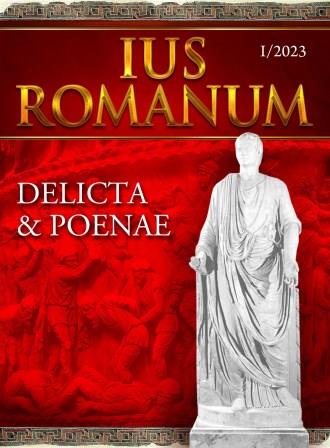НАКАЗАТЕЛНАТА РЕПРЕСИЯ СРЕЩУ ЛИХВАРСТВОТО И НЕЙНОТО РАЗВИТИЕ В РИМСКАТА РЕПУБЛИКА
THE PENAL REPRESSION AGAINST USURY AND ITS DEVELOPMENT IN THE ROMAN REPUBLIC
Author(s): Maria Salazar RevueltaSubject(s): Law, Constitution, Jurisprudence, History of Law, Civil Law, Law on Economics, Philosophy of Law, Roman law
Published by: Софийски университет »Св. Климент Охридски«
Keywords: curule councilmen; faeneratores; leges fenebres; multae feneraticiae; tresviri capitales; usurae
Summary/Abstract: Criminal response to usury in Rome is found to be inextricably linked to the continuous infringements of interest-restraining regulations, together with the most varied juridical instruments that are in effect in civil life, depending on the socio-economic circumstances of each era. From the Republic on, the work of the curule councilmen imposing fines and the possibility (towards the end of the III century B.C.) of bringing a private action in quadruplum is noticeable. Later on, the little effectiveness of the councilmen's interventions was replaced with the per quaestiones procedure, which was put into effect during the first years of the Empire and which was also applied to the annona-related frauds. However, the fight against usurious loans during the Principate moves primarily toward civil life. People had to wait till the Dominate entered the scene to watch the criminal repression of illicit interests once again. Despicable considerations of the usurious crime are stressed, from Diocletian on, as well as the re-establishment of the quadruplum crime on the part of Theodosius. Finally, Justinian will embrace the Diocletian legislation, although he seems to emphasize the civil consequences of the usurae illicitae.
Journal: IUS ROMANUM
- Issue Year: 2023
- Issue No: 1
- Page Range: 476-508
- Page Count: 33
- Language: Bulgarian

